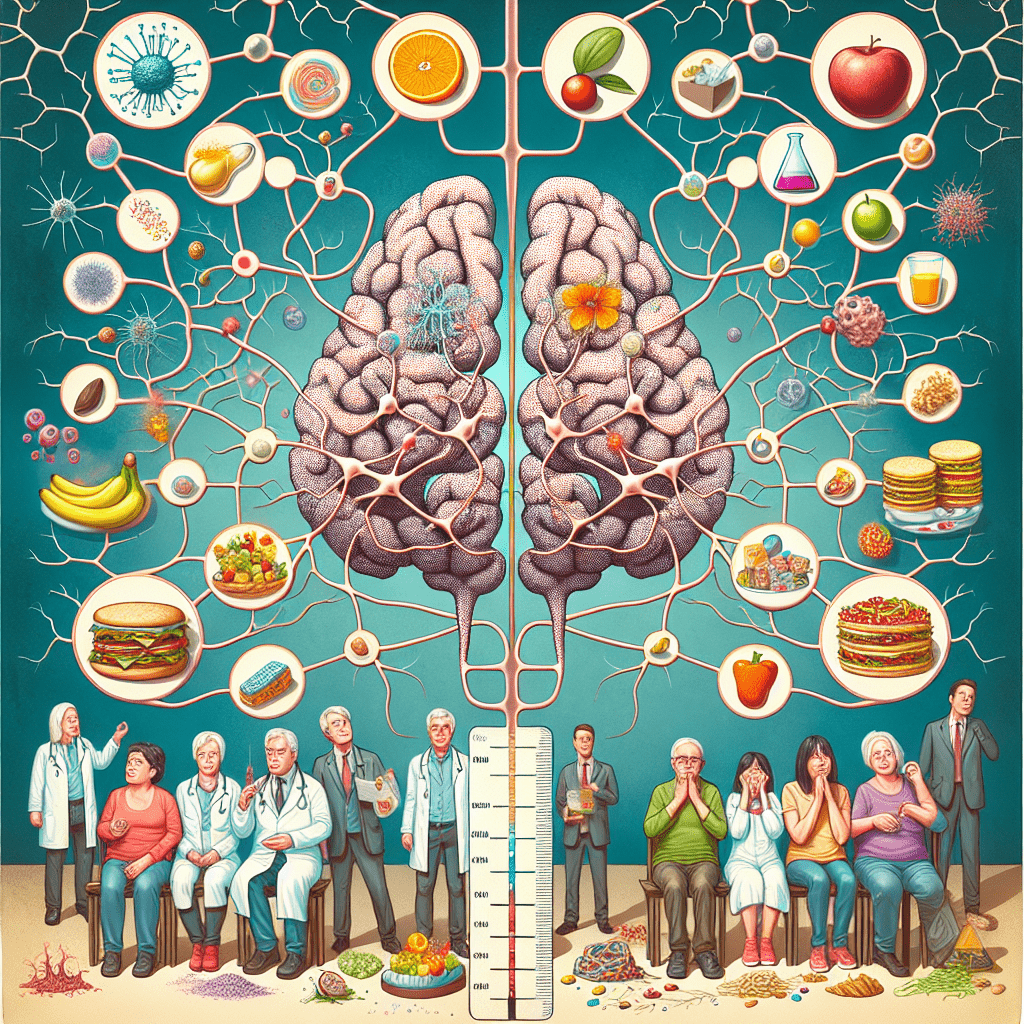[ad_1]
### The Science of Cravings: Emotional Triggers and Food Choices
Do you find yourself reaching for a chocolate bar when you’re feeling down or stressed? Perhaps, it’s the ice cream that calls your name after a long, tiring day. These scenarios are common examples of how our emotions significantly influence our food choices, leading us to crave certain foods. But what’s behind these cravings, and what role do emotional triggers play? This deep dive explores the science of cravings, the impact of emotional triggers on our food choices, and ways to manage them.
#### Understanding Cravings
At the core, cravings are intense desires for a specific type of food, and these can be driven by various factors, including nutritional deficiencies, hormonal fluctuations, and most notably, emotions. Emotional eating, a term well-familiar to many, is when we turn to food for comfort, not out of hunger but to suppress or soothe negative emotions like sadness, loneliness, or stress.
#### The Emotional Brain and Food
The relationship between emotions and food choices is intricately linked to the brain’s reward system. The neurotransmitter dopamine plays a pivotal role; it’s released when we eat foods high in sugar and fat, providing us with a sense of pleasure and satisfaction. This release can be particularly potent if we’re emotionally vulnerable, making comfort foods seem even more appealing during those times.
Stress is a significant trigger for emotional eating. It activates the adrenal glands to release cortisol, known as the stress hormone, which increases appetite and can specifically enhance cravings for sugary and fatty foods. Additionally, emotional eating can stem from habits formed in childhood, where food might have been offered as a reward or to provide comfort, reinforcing the connection between food and emotional solace from a young age.
#### The Impact on Health
While turning to comfort foods occasionally is a normal part of human behavior, relying on food as a coping mechanism can lead to unhealthy eating habits, weight gain, and a cycle of guilt and stress that only fuels further emotional eating. It’s essential to recognize these patterns and find healthier ways to manage emotions.
#### Strategies to Manage Cravings
1. **Mindful Eating**: Practice being present while you eat, savoring each bite and paying attention to how food makes you feel. This practice can help you discern between true hunger and emotional hunger.
2. **Emotional Awareness**: Identifying what triggers your cravings is crucial. Keep a food and mood diary to spot patterns and find alternative ways to cope with those emotions.
3. **Healthy Alternatives**: Have healthier options readily available for when cravings hit. Instead of reaching for ice cream, perhaps a yogurt with fruit could satisfy that sweet craving in a more nutritious way.
4. **Stress Management**: Since stress is a significant trigger for emotional eating, finding stress-relief techniques that work for you, such as yoga, meditation, or even just taking a walk, can be incredibly beneficial.
5. **Support Systems**: Don’t underestimate the power of support. Talking through emotions with friends, family, or a professional can provide comfort and alternative perspectives to handling stress and emotional challenges.
#### FAQs
**Q: Can you really get addicted to certain foods?**
A: Yes, it’s possible to develop a dependency on certain types of foods, especially those high in sugar, fat, or salt, due to the way they stimulate the brain’s reward system. However, this “addiction” is more about habit and emotional reliance than a physical dependency.
**Q: Are cravings always emotional?**
A: No, cravings can also be physiological. For example, craving salty foods could indicate dehydration or an electrolyte imbalance. It’s essential to distinguish between physiological and emotional cravings to address them appropriately.
**Q: How can I differentiate between emotional hunger and physical hunger?**
A: Emotional hunger typically comes on suddenly and demands instant satisfaction with specific comfort foods, whereas physical hunger builds gradually and can be satisfied with various foods.
**Q: Can exercise help with cravings?**
A: Absolutely. Exercise not only helps in managing stress levels, which can reduce the likelihood of emotional eating, but it also boosts overall mood and well-being through the release of endorphins, making you less likely to turn to food for an emotional fix.
**Q: Is it ever OK to indulge in cravings?**
A: Yes, moderation is key. Denying yourself the foods you love can lead to overindulgence later on. Allowing yourself occasional treats, in moderation, can actually help you control cravings better over time. It’s all about finding a healthy balance.
In conclusion, the science of cravings, particularly those triggered by emotions, reveals a complex relationship between our brain’s reward mechanisms, our emotional state, and our food choices. By understanding the triggers and developing healthy coping strategies, we can better manage these cravings and make choices that support our overall well-being. Remember, it’s always about balance and moderation, and it’s perfectly okay to seek professional help if you find emotional eating is significantly impacting your life.
[ad_2]

Leave a Reply